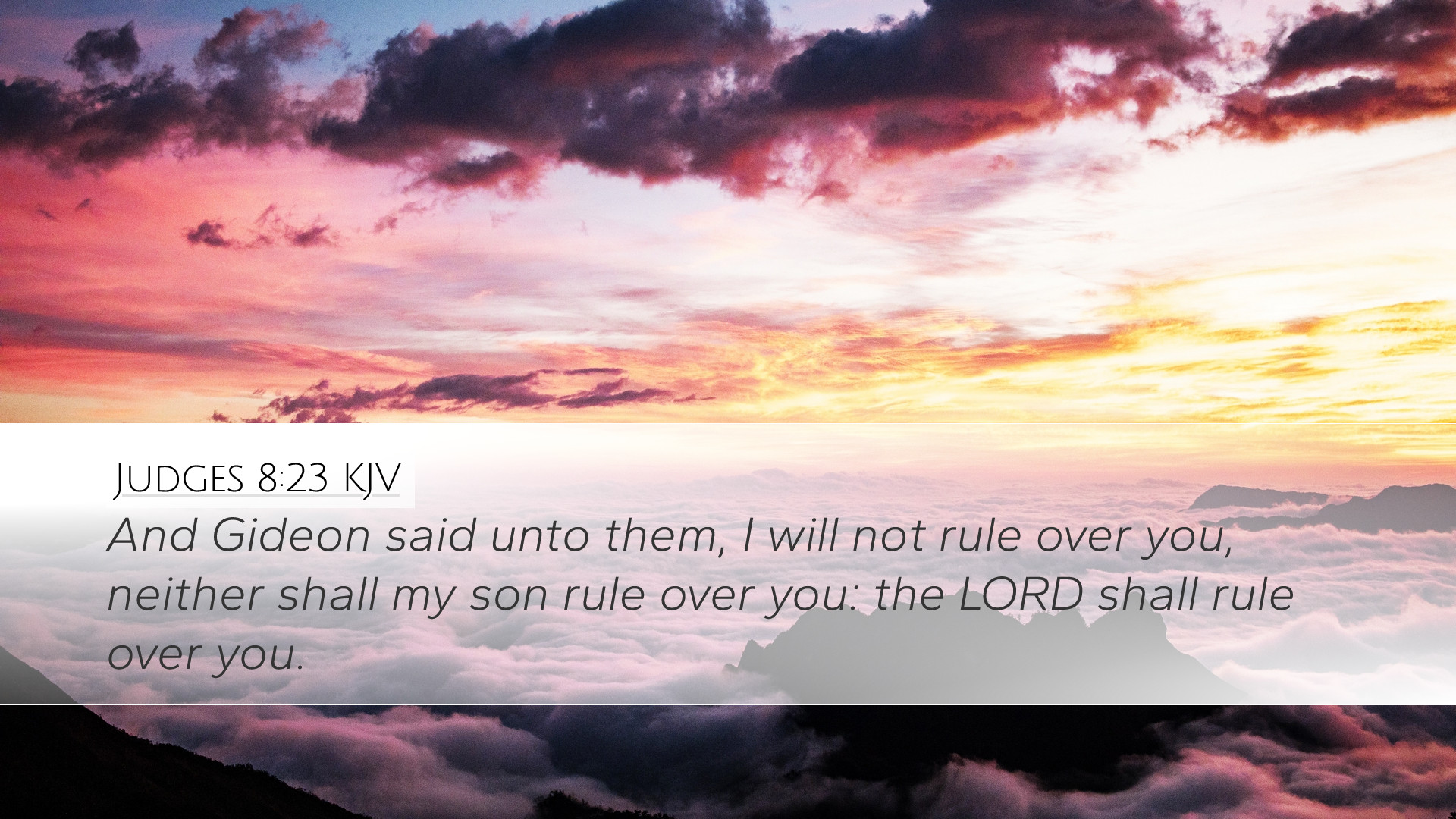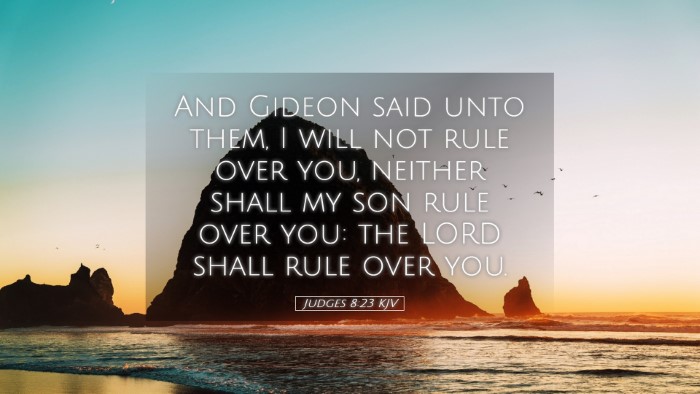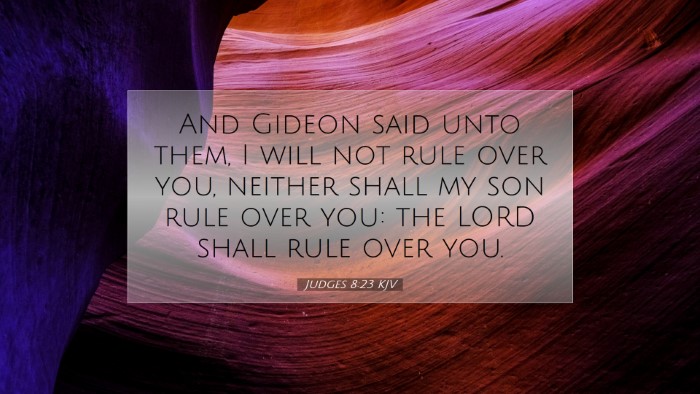Commentary on Judges 8:23
Judges 8:23 states: "But Gideon said to them, 'I will not rule over you, nor shall my son rule over you; the Lord shall rule over you.'"
This verse occurs in the context of Gideon’s victory over the Midianites. After a resounding military success, the Israelite people sought to elevate Gideon to a position of kingship. His response, however, is one of remarkable humility and profound theological significance, reflecting the prevailing theme of divine kingship versus human leadership.
Historical Context
To fully grasp the implications of Gideon's statement, it is essential to understand the historical backdrop in which this event took place. Israel was caught in a cycle of oppression and deliverance, with judges raised up by God to save His people from foreign powers. Each time a judge passed, the Israelites were prone to return to idolatry and rebellion against God.
Gideon’s Refusal of Kingship
Gideon's rejection of the offer to be king exemplifies a crucial biblical principle: the emphasis on God as the ultimate authority and ruler. Various commentators, such as Matthew Henry, highlight Gideon's awareness of the dangers of establishing a human monarchy in Israel.
- Henry notes that Gideon recognized the inherent vulnerability of human leaders to pride and corruption.
- Albert Barnes elaborates on this by explaining that Gideon’s response reflects a conscious repudiation of the instability typically associated with human governance.
- Adam Clarke further emphasizes the radical nature of Gideon’s statement, illustrating his understanding that true leadership belongs to God alone.
Theological Implications
Gideon’s declaration points to the larger theological narrative throughout Scripture: the recognition that God is the ultimate king over Israel. This acknowledgment is crucial for several reasons:
- Divine Sovereignty: Gideon's statement underscores God's sovereignty. The Lord's reign is perfect and just, unlike that of any earthly ruler.
- Spiritual Authority: Gideon’s refusal to take the throne is a powerful reminder of the importance of spiritual authority over secular authority in matters of governance.
- Foreshadowing Christ: This rejection of human kingship also foreshadows the ultimate kingship of Christ, who embodies the perfect ruler.
Lessons for Today’s Church
For contemporary pastors, theologians, and students of Scripture, Gideon's response offers precious lessons:
- Humility in Leadership: Leaders should exhibit humility, recognizing their role as servants rather than rulers of the people.
- Dependence on God: The church is called to rely on God’s wisdom and guidance rather than succumbing to the temptation of worldly power.
- Prioritizing God’s Rule: The community of believers must prioritize God’s rule in the life of the church, ensuring that missions and ministries reflect His sovereignty.
Conclusion
Judges 8:23 serves as a significant reminder of the nature of true leadership in God's kingdom. Gideon’s refusal to reign as king is not just a historical footnote but a call to acknowledge the rightful sovereignty of God over every aspect of life and ministry. As we honor God's rule, we lay the foundational stones for a leadership model that seeks to reflect the heart of God—a model that is essential for the flourishing of the church in every generation.


